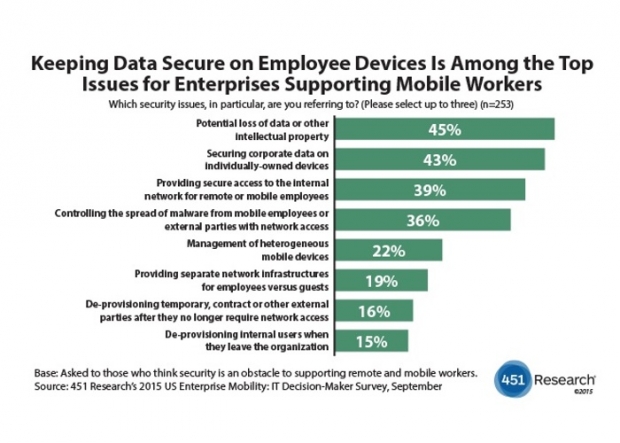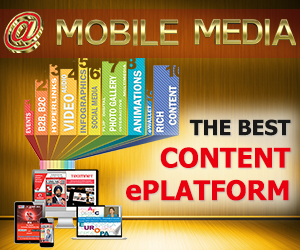
The use of consumer-based messaging apps for business is growing in popularity among mobile workers, but these apps could be a risky venture for enterprises when it comes to protecting information. That's according to a new study by Infinite Convergence Solutions that asked 500 professionals about their mobile messaging habits, according 451research.com. The survey found 44% of employees regularly use mobile messaging apps throughout the workday, with SMS/MMS, Facebook Messenger, Skype and Google Chat/Hangouts topping the list. According to the study, 54% of retail employees, 51% of healthcare employees, 44% of legal employees and 38% of finance employees say their company does not have an official mobile messaging platform. Healthcare, finance and retail respondents indicated message security as the number one concern with mobile messaging for business communication. Lack of paper trail is the number one concern with mobile messaging for those in the legal field.
451 Research Senior Analyst Raúl Castañón-Martínez comments
"Results from the study by Infinite Convergence are consistent with our own research that shows that despite efforts by IT, the use of consumer over-the-top (OTT) apps in the workplace persists while adoption of enterprise mobile messaging applications still lags behind. This is not unique to mobile messaging. IT typically faces similar challenges with other enterprise applications but mobile messaging is particularly notorious given that workers are frequently using OTT messaging apps for work. We believe this is set to change. Messaging vendors such as Briefery, Kore, Lua and Teamchat (Webaroo) are positioning enterprise messaging within the context of workflow messaging; and companies like Infinite Convergence are going even a step further by providing messaging solutions for wearable devices. These innovations will have a direct impact on how employees get work done; we expect this will finally bring enterprise mobile messaging from behind the shadow of OTT consumer apps and position it as one of the core productivity tools for the enterprise, alongside email and calendar applications."





